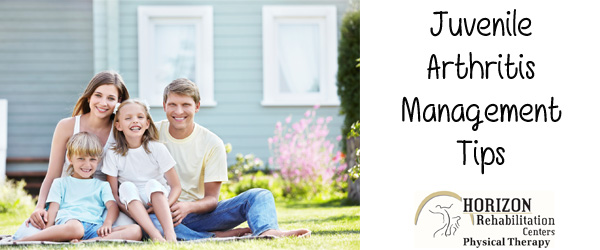
Check out these tips that can help manage your child’s juvenile arthritis symptoms and prevent flare ups.
No parent wants to see their child in pain or struggle with a medical condition. But for thousands of families across the United States, juvenile arthritis presents daily challenges for children, causing pain, swelling and limiting mobility because it can hurt to move.
According the Arthritis Foundation, nearly 300,000 children under the age of 16 are dealing with the effects of juvenile arthritis, commonly referred to as JA. Horizon Rehab is here to be your resource, to help you aid your child in managing JA and live a more normal life. Browse through these tips to help your child.
Maintain a Medication Routine
Kids can be forgetful. And while it can be frustrating when your child forgets to clean their room, when they forget to take their medication, there can be consequences. When it comes to JA, even forgetting one dosage of medication can lead to a flare. Set a routine and make sure your child sticks to it.
RICE is Your Friend
No, we’re not talking about the food. RICE refers to a treatment philosophy for treating injuries, standing for Rest, Ice, Compression and Elevation. If your child’s symptoms are flaring up, limiting their activity, putting ice on their aching joints, massaging or wrapping the area and elevating the affected area can help.
Keep Your Child Active
This may seem counterproductive, especially for a condition that causes pain in your child’s joints. But if your child stays active, it can help prevent a flare. How much activity each child can handle will vary, so have a discussion with your doctor to determine how much activity your child can handle.
Horizon Rehab offers a wide range of physical therapy services for adults and children, including programs to help deal with chronic pain and fibromyalgia. Contact us to learn more about these programs.
Tags: juvenile arthritis management